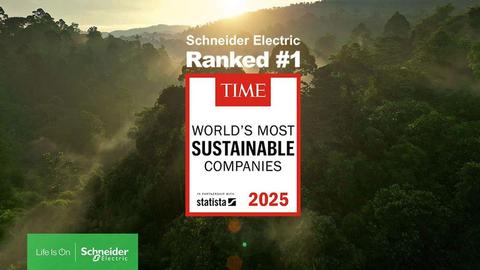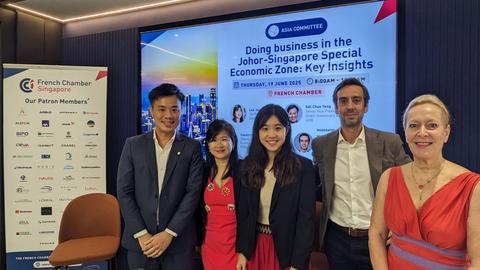Portraits
FOCUS 72: A Steady Transition To A Renewable Energy-Fuelled Future

Jean-Philippe Buisson, Senior Vice President Asia, EDF International Division, discusses the company’s ambitions to help the region achieve its environmental goals.
Tell us more about EDF’s activities in Southeast Asia
EDF has its presence in the region for more than 30 years with an attractive portfolio of low-carbon and innovative projects. Though an energy leader in Europe, EDF is a smaller player in Asia. Our ambition is to build strong partnerships and to bring EDF specific know-how in the right solutions for local markets. In 2020, we will be celebrating significant milestones. In Laos, we have been successfully operating the 1,070 MW Nam Theun 2 hydroelectric power plant for 10 years with Asian joint-venture partners.
In South Vietnam, the MECO joint-venture led by EDF, operating a 715 MW gas-fired power plant, will celebrate its 15th anniversary. We are proud of our two plants: safety standards, efficiency, reliability, local community support, are certainly at the highest level across regional power producers. South Asia is fully part of EDF’ Group’s ambition. Our team is headquartered in Singapore with local offices in Jakarta, Delhi, Yangon, Hanoi, and Tokyo. It is completed with our 5 year-old Singapore R&D Lab to sustain our ambitious long term plan!
What is the company’s strategy for innovation with regards to renewables and energy transition?
As energy players, we know that energy production and consumption represent a major part of global CO2 emissions. Decarbonizing energy has become the most urgent collective challenge and using electricity to achieve “zero carbon” is almost always the most efficient, most versatile and economical solution, while offering equal or better service compared to traditional energy sources. That’s very true in buildings, transport and industry. The future of energy is electric! EDF is fully committed to this energy transition. The EDF Group’s carbon intensity (55 g/kWh) is six times lower than the sector’s average worldwide, among others thanks to its large nuclear fleet in France and UK. Moreover, we made the commitment to reduce it further down to reach carbon neutrality by 2050. In Asia, we are actively pursuing our renewable energy development.
In India, we are reaching 1.5 GW of wind and solar renewable energy under operation or construction. New Vietnam onshore wind project delivery is our challenge for 2020 and 2021. In Indonesia, we are currently investigating opportunities for onshore wind, solar and storage projects. In Laos, we are very excited to develop one of the largest floating solar plants in the world (240 MWc), “hybridized” with our Nam Theun 2 hydroelectric power plant. It would be a world’s first. In Myanmar, EDF is leading a Public-Private-Partnership to build a 670 MW hydroelectric dam on the Shweli River in the North-East of the country. In Vietnam, gas-fired electricity generation can participate in energy transition as long as it contributes to replacing coal-fired generation, and operates with optimal efficiency plants. We are developing with Asian partners a new combined-cycle gas turbine plant, SonMy1.
The energy transition and digital revolution are creating new business opportunities.
For instance, the growth of intermittent sources increases the need for flexibility in power systems. It means more storage and smarter grids. Smart meters will also enhance network management capabilities and improve system flexibility. In France, Enedis (EDF group) is currently installing 35 million smart meters; this expertise is widely recognized. In India, EDF has been selected to rollout five million smart meters across a few states, including end-to-end IT solution for distribution companies.
Alongside “energy transition”, “energy for all” is a crucial challenge to address.
Don’t forget that today more than 60 million people in South-East Asia have zero to very limited electricity supply. Access to electricity is the energy revolution they have been waiting for!
In Singapore, on the island of Semakau, EDF - in partnership with Nanyang Technological University - has successfully deployed the hybrid microgrid demonstrator called MASERA: Microgrid for Affordable and Sustainable Electricity in Remote Areas. This serves now the development of microgrids projects in Indonesia and Myanmar, providing round-the-clock low-carbon electricity to remote villages, industries and entire islands.
In India, we will be launching in 2020 “EDF Pulse India”, a contest to scout and partner with innovative startups that bring cutting-edge technologies, new business models and disrupting services to match our development ambition. We want to maintain our positive momentum beyond the COVID-19 crisis as business will restart with high expectations so we certainly need to address our future in a different manner!
Zero carbon” electricity for all is a powerful catalyst for a cleaner future for our planet!
South Asia and especially Singapore are wonderful places to test new ideas, grow promising partnerships, connect with innovative people and ultimately deliver strong results. Let’s join forces towards that exciting challenge!
THE WATER COOLER CHAT
“When I’m not traveling for work, I am.......”
I am enjoying life in Singapore and SouthEast Asia with my wife, and keeping in touch with my three daughters in Paris. I am also working hard to improve my Chinese Mandarin language, a fascinating and never-ending challenge. And learning to play accordion: I found the only (and impressive!) accordion teacher in Singapore, and am eager to progress with that demanding and catchy instrument!
What time are you at your desk?
Usually I am in my Suntec office around 9am, but half of my time is spent traveling across Asia, meeting with colleagues, partners, and customers: at 9 AM, I can very well be on a remote site in Laos or in a meeting room in Vietnam or in a plane just taking off from Singapore airport! Of course, all that was a long time ago... before the Covid-19 crisis.
Recommend 2 great (business) books.
I am not fond of business books, I much prefer reading novels. Businessmen also need evasion and fine arts! I can recommend 2 local novels that I appreciate for their style and originality: “The Sum of Our Follies”, quite a poetic Malaysian novel from Shih-Li Kow; and an unusual and rather subversive graphic novel of Sonny Liew, “The art of Charlie Chan Hock Chie” about the 60s in Singapore.

Interview with Jean-Philippe Buisson, Senior Vice President Asia, EDF International Division , for FOCUS #72. To read more articles from this issue, download your digital copy here


